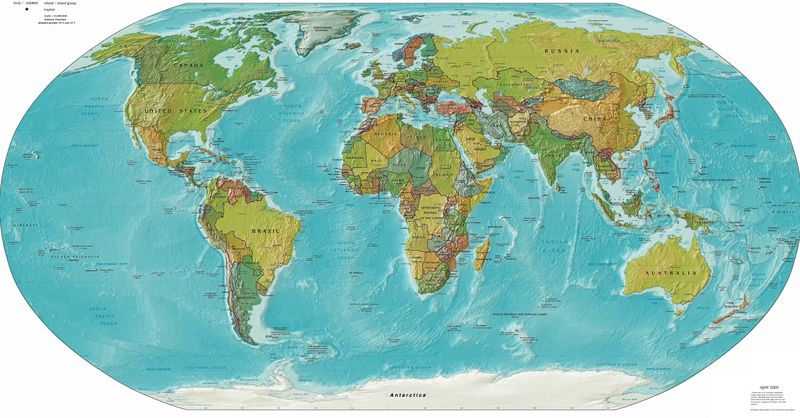There is no doubting that we live today in an interconnected, globalized world with billions of people every day plugging into a global network through our computer screens, televisions, radios, and mobile phones. But is that a good or a bad thing? A new study suggests that globalization could lead to people cooperating more at a global level, which could help us tackle big global problems like climate change and the overexploitation of natural resources.
 Nancy Buchan from the University of South Carolina in the US lead an international team of researchers who have been looking at the issue of how globalization and cooperation in a study published in the journal PNAS.
Nancy Buchan from the University of South Carolina in the US lead an international team of researchers who have been looking at the issue of how globalization and cooperation in a study published in the journal PNAS.
They carried out an experiment with over a thousand volunteers from Argentina, Iran, Italy, Russia, South Africa, and the United States, to test their attitudes towards cooperating at a local and global level.
Each volunteer was given 10 hypothetical tokens each worth the equivalent of 50 US cents and were asked to allocate the tokens between a personal, a local and a world account.
The question they faced was, do you keep all your money to yourself with no return? Do you put it into a local account that will give you a moderate return but will cost you a little and benefit other local volunteers? Or do you put it into a world account that sees a smaller return and again will cost you but will benefit people in other countries? The volunteers weren't told how many tokens other people put into the world account, but the more they did, the more each volunteer would gain.
By putting tokens into the world account, volunteers were demonstrating their willingness to cooperate with other people on a global level, while those choosing the local account were demonstrating a more parochial outlook.
Buchan and her team also measured the Individual-level Globalization Index (or IGI) for each volunteer, which scores how connected someone is to a global network. This involves asking people questions like How often do you watch TV or a movie from a different country? And Do you use a mobile phone to contact people in your own country or in other countries? The more connected you are to a global network, the higher your IGI score comes out.
People with higher IGI scores were those who allocated more tokens to the world account, rather than the local or personal accounts. Also, people from countries rated as being more globally connected, were also more likely to put their money into the world account.
This study is the first to back up the theory that globalization can be a positive force, and when people are connected to a global network, instead of people feeling the need to emphasize their differences to other people and places, it increases the feeling of belonging to a vast group of people all sharing the same planet. It seems that globalization makes people more likely to cooperate globally rather than think locally. And that must surely be a good thing when it comes to dealing with some of the big problems we face today.
- Previous Look into my DNA…
- Next Problems in store for older dads’ kids?










Comments
Add a comment